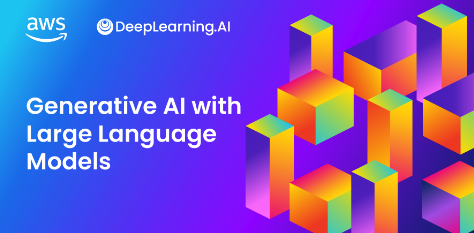
DeepLearning.AI and AWS revealed a brand-new course called Generative AI with Big Language Designs on Coursera.
This hands-on course intends to gear up information researchers and engineers with the abilities required to end up being skilled in using big language designs (LLMs) for useful applications. Individuals will acquire competence in different elements, consisting of picking proper designs, training them successfully, tweak their efficiency, and releasing them for real-world situations.
It uses a detailed expedition of LLMs within the context of generative AI tasks, covering the whole lifecycle of a normal generative AI job, incorporating vital actions such as issue scoping, LLM choice, domain adjustment, design optimization for implementation, and combination into service applications. The course not just stresses useful elements however likewise explores the clinical structures behind LLMs and their efficiency.
The course is created to be versatile and self-paced, divided into 3 weeks of material that amounts to roughly 16 hours. It consists of a range of discovering products, such as videos, tests, laboratories, and extra readings. The hands-on laboratories, helped with by AWS Partner Vocareum, permit individuals to straight use the methods in an AWS environment particularly offered the course. All the needed resources for dealing with LLMs and exploring their effectiveness are consisted of.
Week 1 of the course will cover generative AI usage cases, job lifecycle, and design pre-training where trainees will take a look at the transformer architecture that powers lots of LLMs, see how these designs are trained, and think about the calculate resources needed to establish them.
Week 2 covers the alternatives for adjusting pre-trained designs to particular jobs and datasets through a procedure called fine-tuning.
Lastly, Week 3 will need users to make the LLM actions more humanlike and align them with human choices utilizing a method called support gaining from human feedback.
.